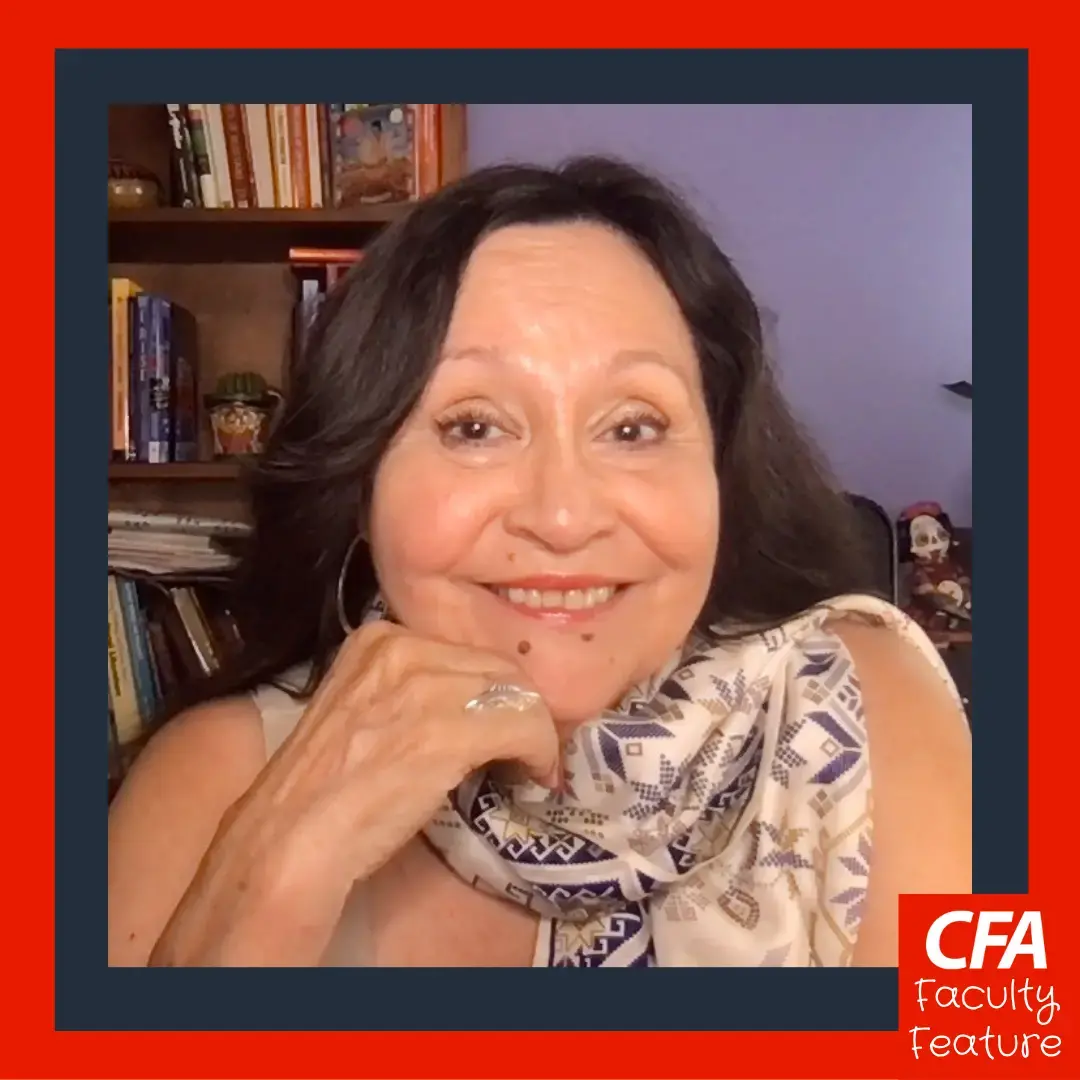Faculty Feature: CFA Northridge Member Organizes for the Common Good
“The advancement of Ethnic Studies has been a lifelong project, and to see my union supportive and responsive is healing. I know my union has my back,” said CSU Northridge Professor of Chicana/Chicano Studies Theresa Montaño.
Montaño has had many roles within CFA, including former tri-chair of the Chicanx/Latinx Caucus, the first representative from CSU Northridge for what was then called the Council on Affirmative Action, and the current chair of the Teacher Education Caucus. Stepping into caucus spaces as they were formed was revelatory for Montaño since it was filled with the familiar faces of people she admired.

Reflecting on her career and passions, the movement for Ethnic Studies inspires her.
Montaño doesn’t think it’s well understood the pivotal role CFA played in the 2020 passage of Assembly Bill 1460.
On August 17, 2020, Governor Gavin Newsom signed CFA-sponsored AB 1460 into law. California became the first state in the nation with a four-year public higher education system that required completion of an Ethnic Studies course for graduation.
At the time, the coalition of Ethnic Studies advocates included CSU Ethnic Studies faculty who had long been a part of the development of and experts in Ethnic Studies curricula and included Montaño, Melina Abdullah from CSU Los Angeles, Kenneth Monteiro and Russell Jeung from San Francisco State, Maulana Karenga from CSU Long Beach, and many others.
CFA is more than just my site of activism. It’s also my site of community and love.
– Theresa Montaño.
“Getting AB 1460 passed sent waves through every system from K-12 to higher ed,” Montaño said. “People look to the CSU and the work we’re doing in Ethnic Studies because we set the foundation, and that would not have happened without my union.”
At the outset, some within CFA hesitated about advocating for Ethnic Studies. They reasoned that white members would feel alienated and leave the union. Following a U.S. Supreme Court decision making it harder for unions to collect member dues (Janus v. AFSCME), concern about membership levels was heightened. It was the work of the caucuses to hold CFA accountable to its anti-racism and social justice principles and fight for Ethnic Studies.
At the local level, there is still pushback. “At CSU Northridge, we work hard at developing new curriculum, certification, and programs. Yet we are still met with resistance from colleagues who claim to own pedagogy. My K-12 colleagues are bombarded with outside critiques, ‘freedom of information’ requests from dubious organizations, curriculum is censored, and more.”
For Montaño, advocating and resisting in the community is an intentional practice.
“Doing good work requires that we have one another’s back and do it in community,” said Montaño. “CFA is more than just my site of activism. It’s also my site of community and love.
“The caucuses are not just places where we do our advocacy work. It’s a place where we make connections. That was the beautiful thing about working with people like John Halcon. They were not just people I felt I could take into battle, but also people I wanted to break bread with,” Montaño reflected.
CFA President Charles Toombs is appreciative of all the ways Montaño adds her fiery activism to CFA.
“Theresa Montaño is a real powerhouse and force in public education and Ethnic Studies from K-12 to higher education at local, state, and national levels. She is highly recognized and sought after for her leadership and revolutionary guidance and transformation of public education and Ethnic Studies and their intersection. Moreover, she is mentoring a new generation of scholar-activists in these areas. I am proud to say that she has mentored me over the years, too,” Toombs said.
Montaño’s work and advocacy has impacted many, including CSU Los Angeles Lecturer Leda Ramos.
“Theresa Montaño is a mentor who I admire for the depth of her social justice expertise, community knowledge, sincerity, and her fierce and tenacious advocacy for an ‘authentic’ Ethnic Studies curriculum,” Ramos said. “As a colleague in the Chicanx/Latinx Caucus, I see her visionary no-nonsense practice inclusive of her ability to generate joy and humor while maintaining a balance with family, friends, and her revered Dodgers. She is my shero!”
For incoming faculty or those curious about getting more involved, Montaño wants them to understand that when union members volunteer and participate, they contribute to the entire CFA community.
“As CSU faculty, you are already part of this. It’s just a question of not rejecting it,” said Montaño. “So, enter, open your arms, and be ready to be a part of something bigger than you.
“The word union means something. It means unity. It means solidarity. It means working together and collectively for the common good. That common good isn’t just your bread and butter, your working conditions. That common good includes those who help put food on your table, our students, and the communities they come from.”
Join California Faculty Association
Join thousands of instructional faculty, librarians, counselors, and coaches to protect academic freedom, faculty rights, safe workplaces, higher education, student learning, and fight for racial and social justice.